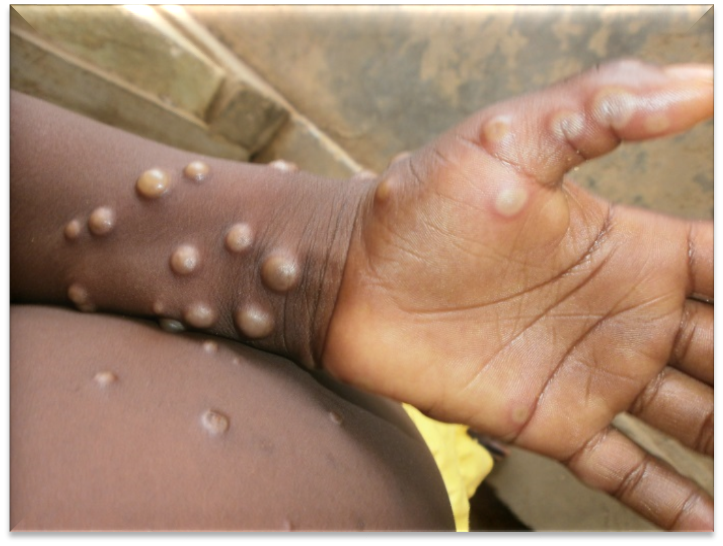
In 2022, the World Health Organization (WHO) made the significant decision to rename the disease known as monkeypox to "mpox." This decision was not just about semantics; it addressed the longstanding issues of racism and discrimination linked to the original name.
With the virus spreading globally and reemerging in various regions, it's essential to understand the origins of the name "monkeypox" and why a change was needed. This situation also calls for a closer look at how the disease is currently being managed worldwide, including in Türkiye.
The name "monkeypox" was first used in 1958 when researchers in Denmark identified a pox-like disease in laboratory monkeys. Despite the name, monkeys are not the primary carriers of the virus; instead, rodents are believed to be the main hosts.
The first human case of the virus was documented in 1970 in the Democratic Republic of the Congo. For many years, the virus was largely confined to central and West Africa, where it was relatively unknown to the rest of the world.
However, the name "monkeypox" has long been criticized for perpetuating harmful stereotypes about Africa and black people. It falsely implies that monkeys are the primary source of the virus, contributing to public misconceptions and fueling discrimination.
Critics of the name have pointed out that it reinforces negative associations with Africa, where the virus was first identified in humans, and with black people, who have historically been dehumanized through comparisons to primates.
As mpox began to spread rapidly beyond Africa in 2022, particularly in Europe and the United States, the controversy surrounding its name intensified. Public health experts and activists argued that the term “monkeypox” was not only misleading but also harmful, as it contributed to the stigmatization of those most affected by the virus, including LGBTQ+ communities.
Dr. Ifeanyi Nsofor, a global health equity advocate, supported the renaming, emphasizing that “Mpox is better than monkeypox because it still contains ‘pox,’ which speaks to the physical nature of the disease.
Removing ‘monkey’ removes the stigma that monkeypox comes with and deals with the possible misinformation.” His comments reflect the broader concerns that led to WHO’s decision to rename the disease.
The renaming process was not immediate. WHO initiated consultations with experts and the public to gather input on potential new names.
After considering more than 200 proposals, WHO announced in November 2022 that “mpox” would replace “monkeypox.” The organization decided that both names would be used during a one-year transition period to allow for a smooth adjustment and to minimize confusion.
Renaming the disease to mpox was a significant step in reducing the stigma associated with the virus. The global health community widely supported the change, recognizing the importance of addressing the negative impact of the original name on public perceptions and those affected by the virus.
U.S. Health and Human Services Secretary Xavier Becerra expressed support for the change, stating, “We must do all we can to break down barriers to public health, and reducing stigma associated with the disease is one critical step in our work to end mpox.” His statement underscores the need for continued efforts to combat the virus and the discrimination that often accompanies it.
Despite the name change, mpox remains a public health concern. The virus continues to spread, particularly in regions with limited access to vaccines and healthcare. The Democratic Republic of the Congo, where the virus has been endemic for decades, remains heavily affected. Efforts to control the virus in such areas face significant challenges due to resource constraints.
As the global situation with mpox continues to evolve, Türkiye has taken steps to monitor and prepare for any potential outbreaks within its borders. Although no cases have been confirmed in the country so far, Health Minister Kemal Memisoglu has stressed the importance of staying vigilant. “We are keeping a close watch on the developments related to mpox and COVID-19. However, there is no immediate alarm at the moment,” he stated.
Experts like professor Dr. Mehmet Ceyhan have echoed these concerns, warning that the virus could eventually reach Türkiye. He noted, “It is unrealistic to assume that mpox won’t reach Türkiye. While no cases have been confirmed here yet, we should not be complacent.” This cautious approach reflects the broader global awareness of the potential for the virus to spread, especially in regions with significant travel connections to affected areas.